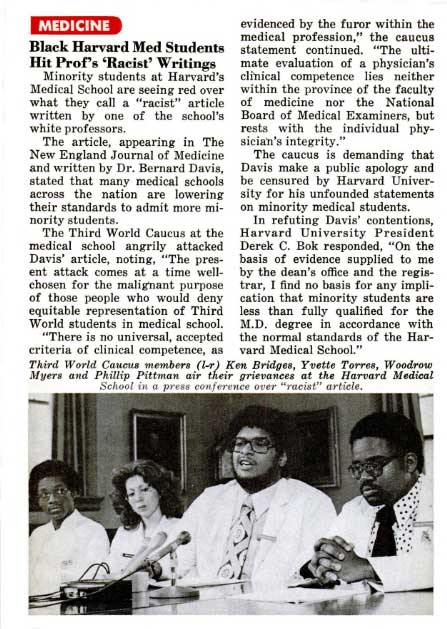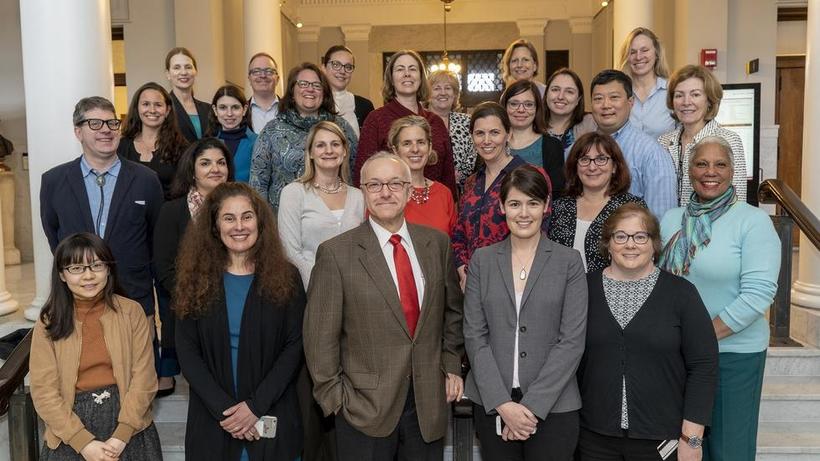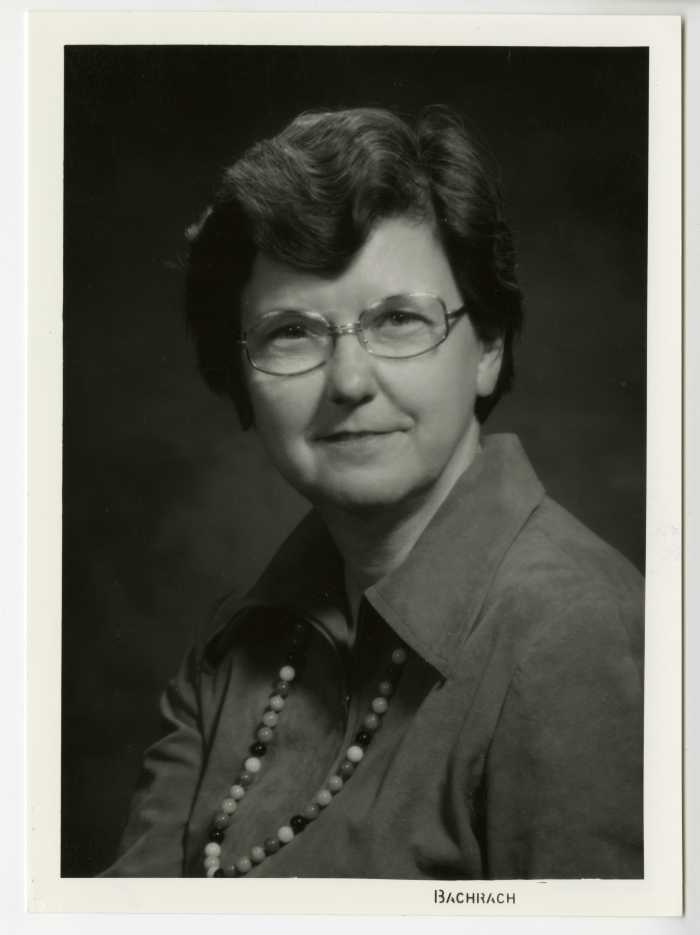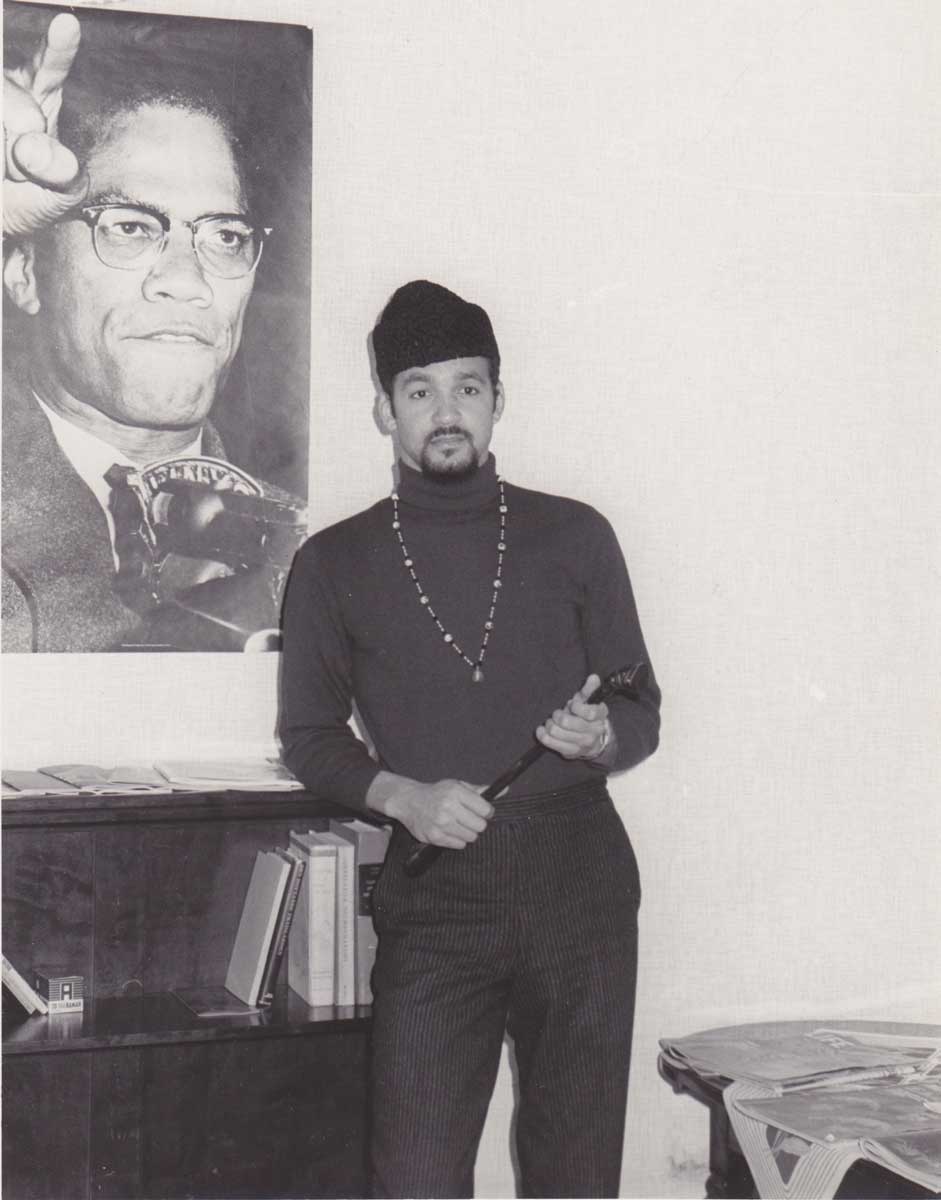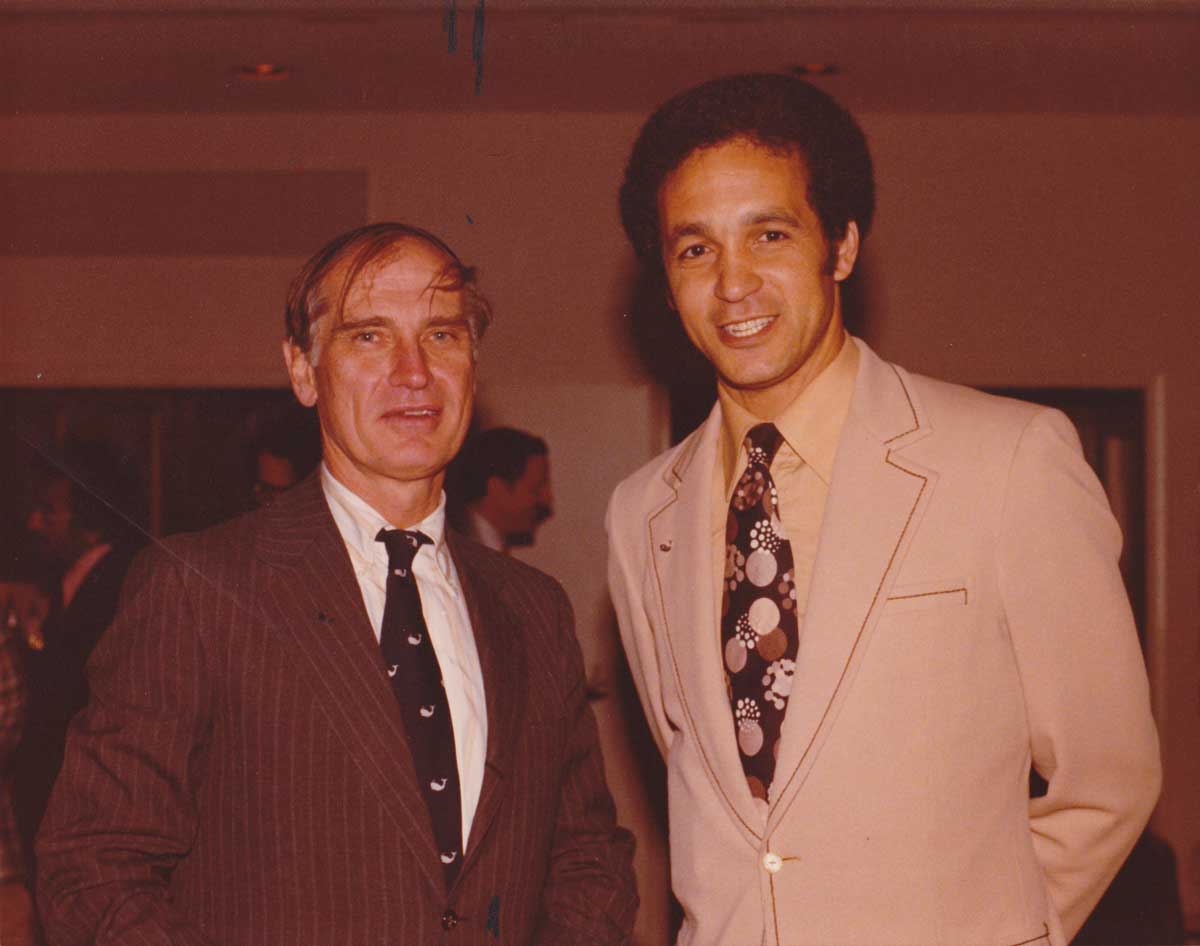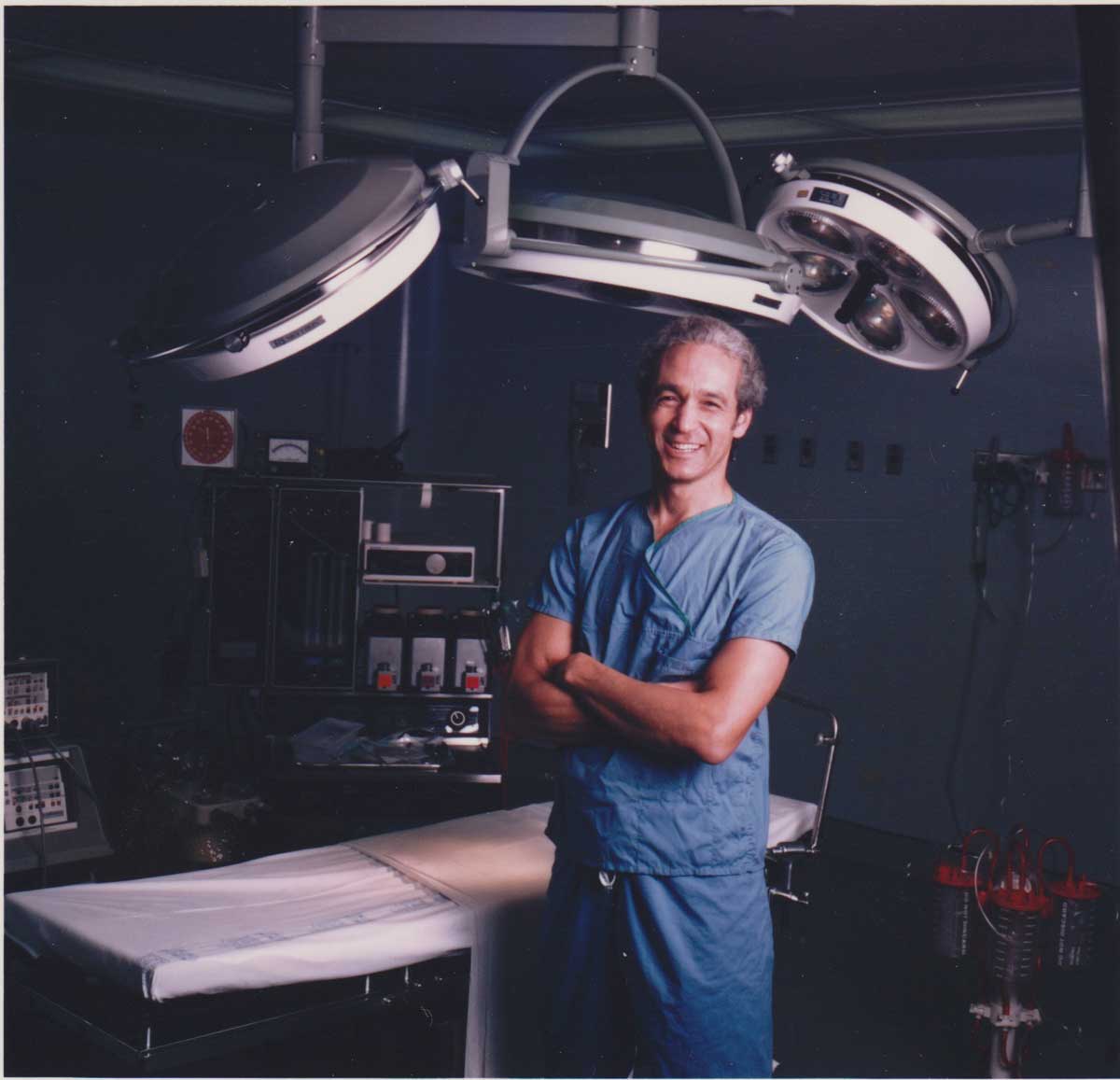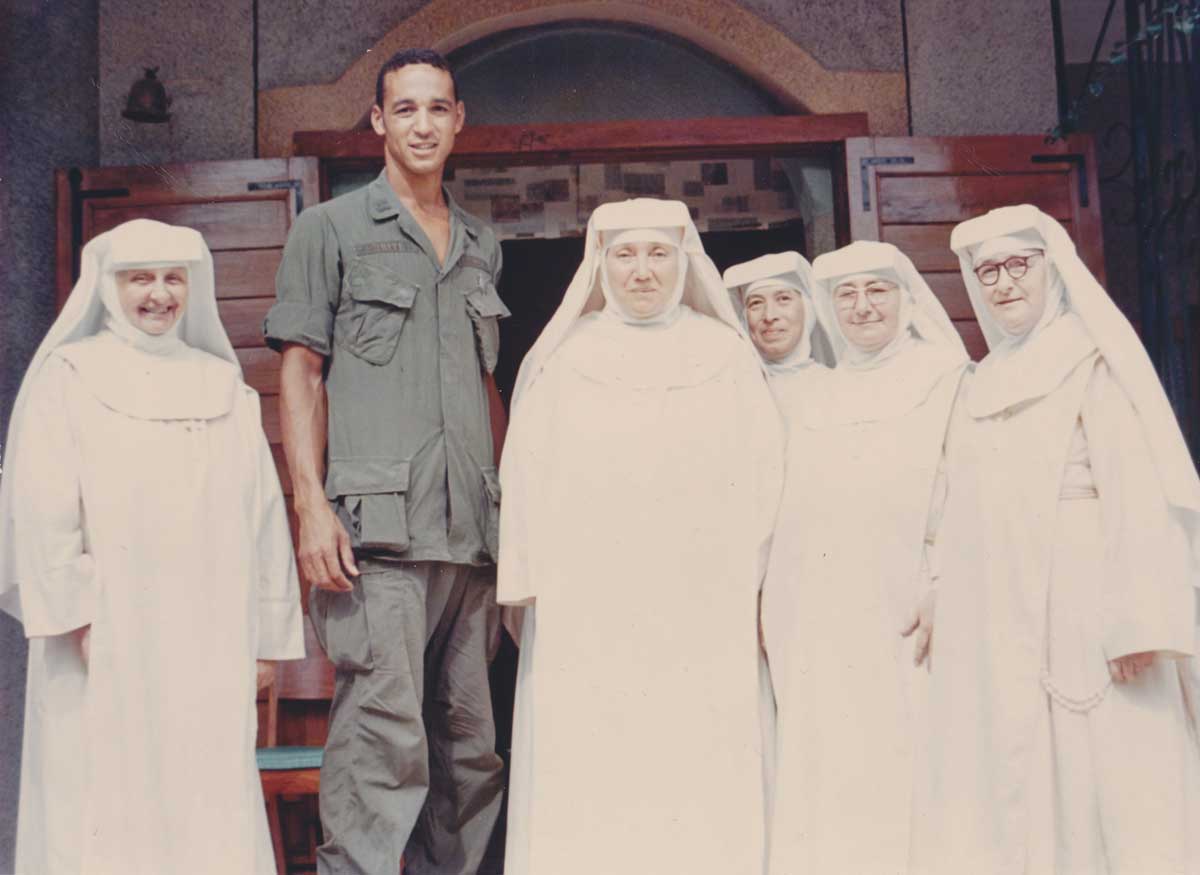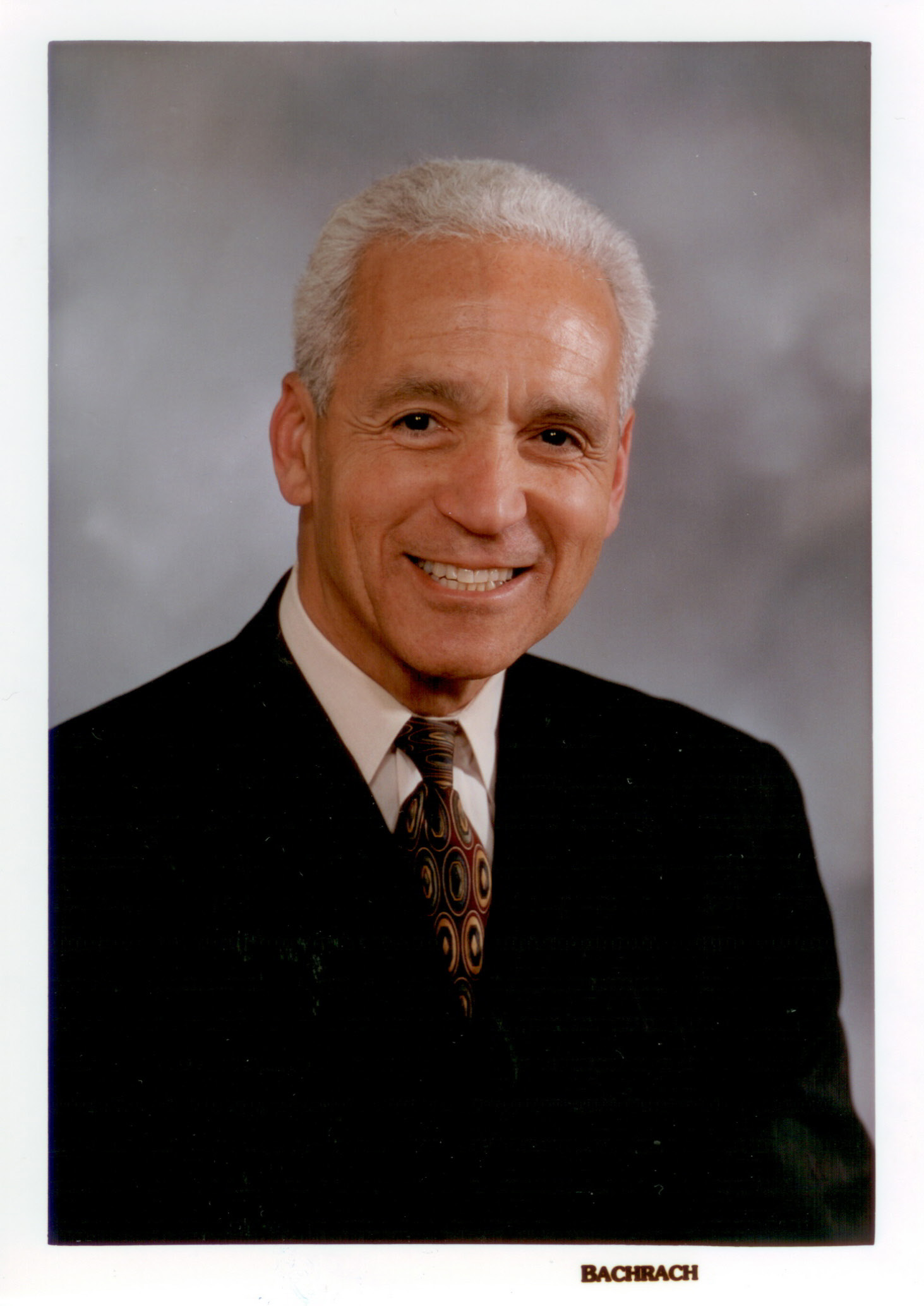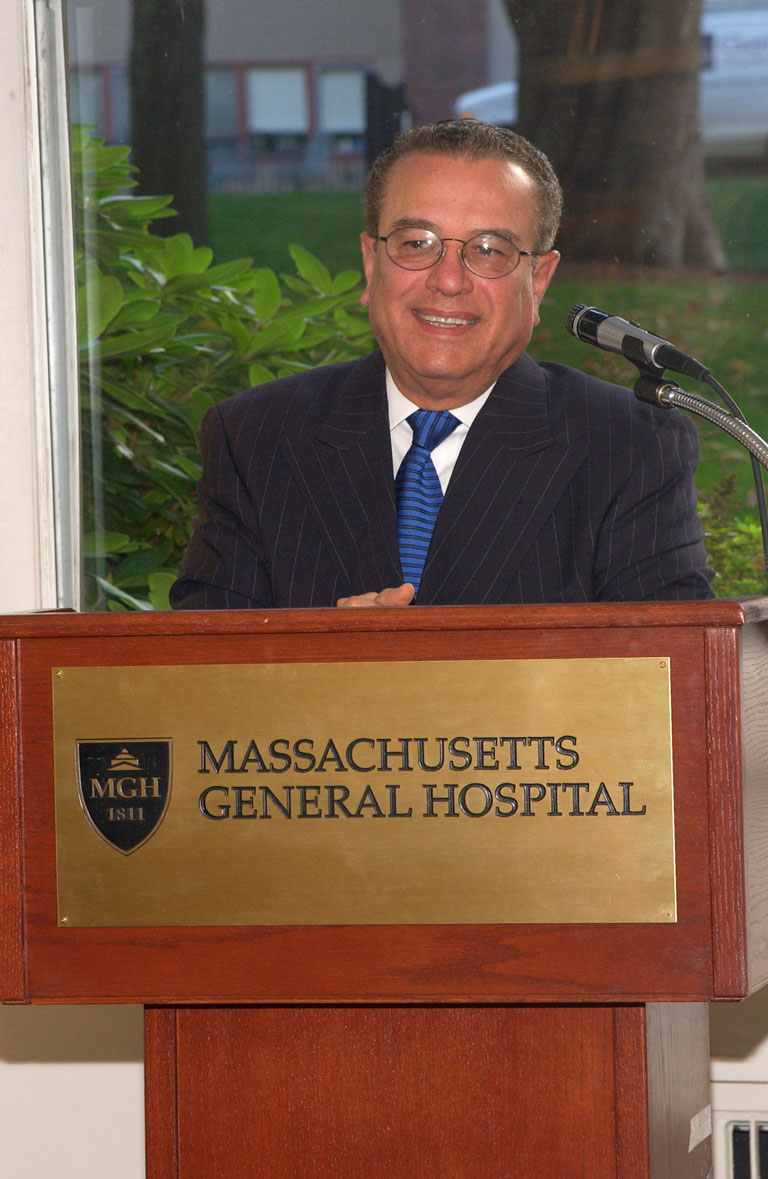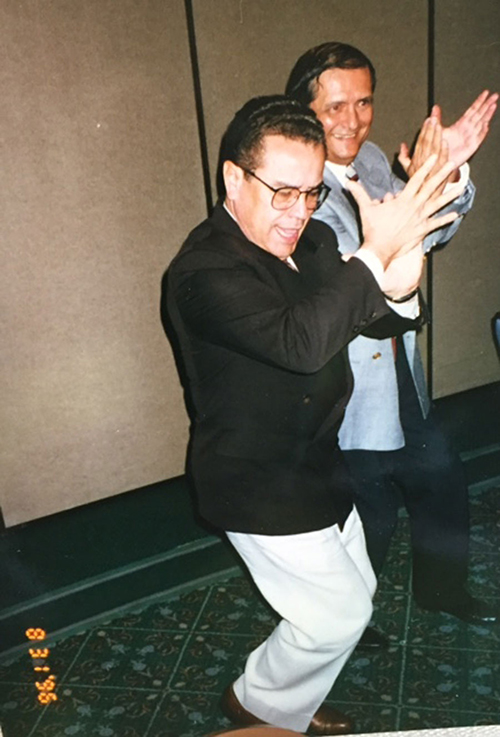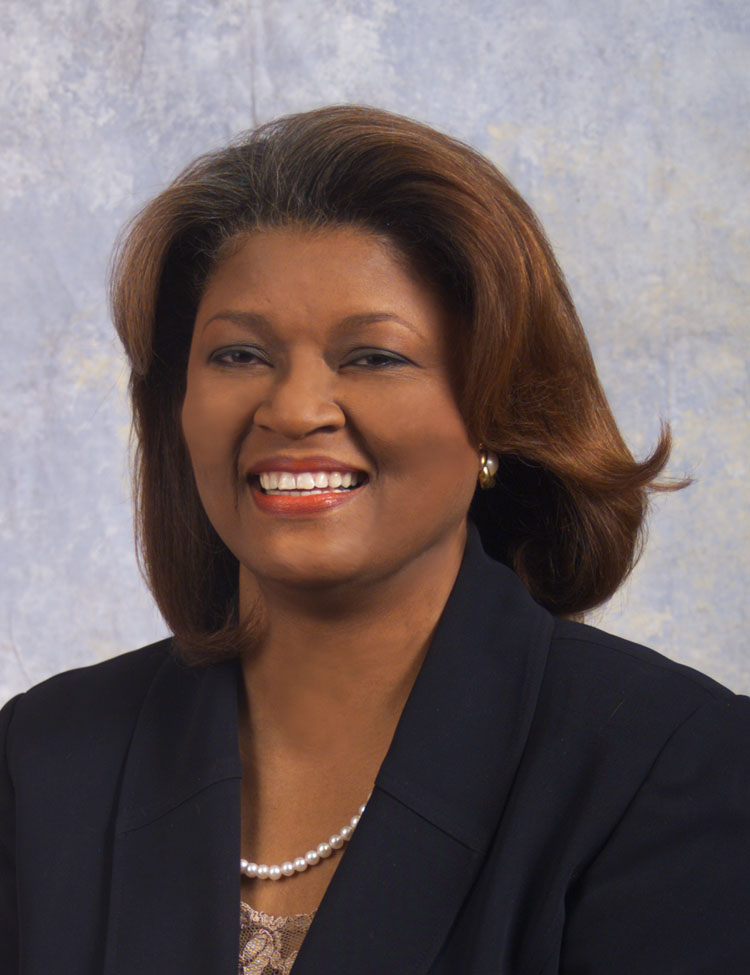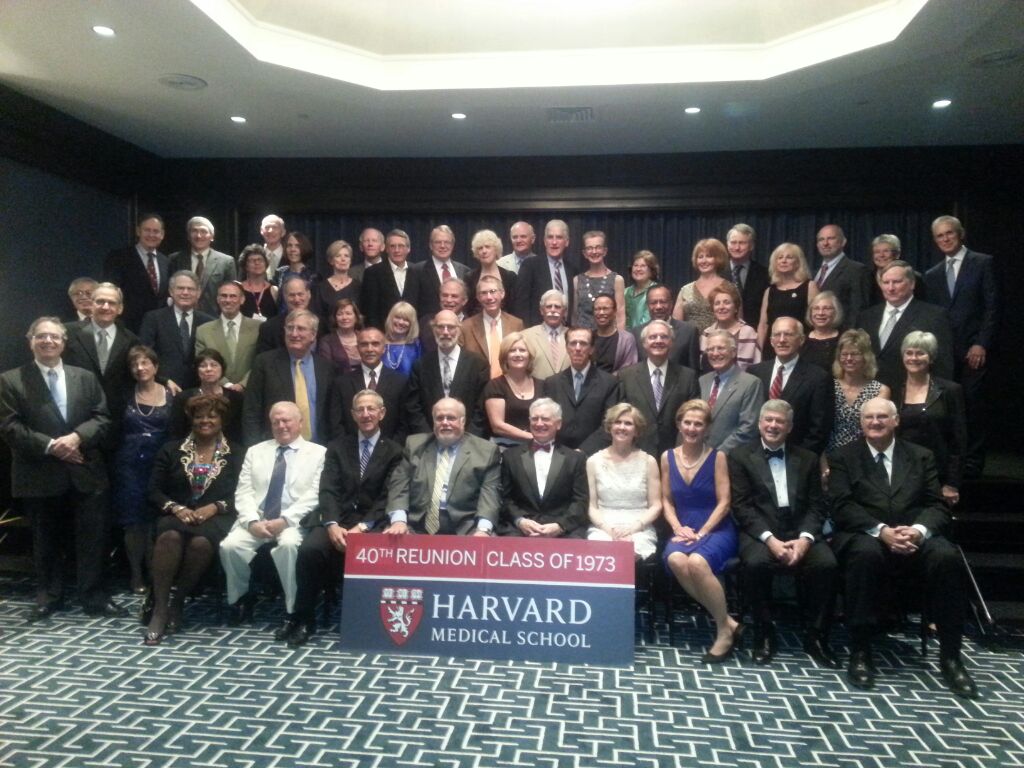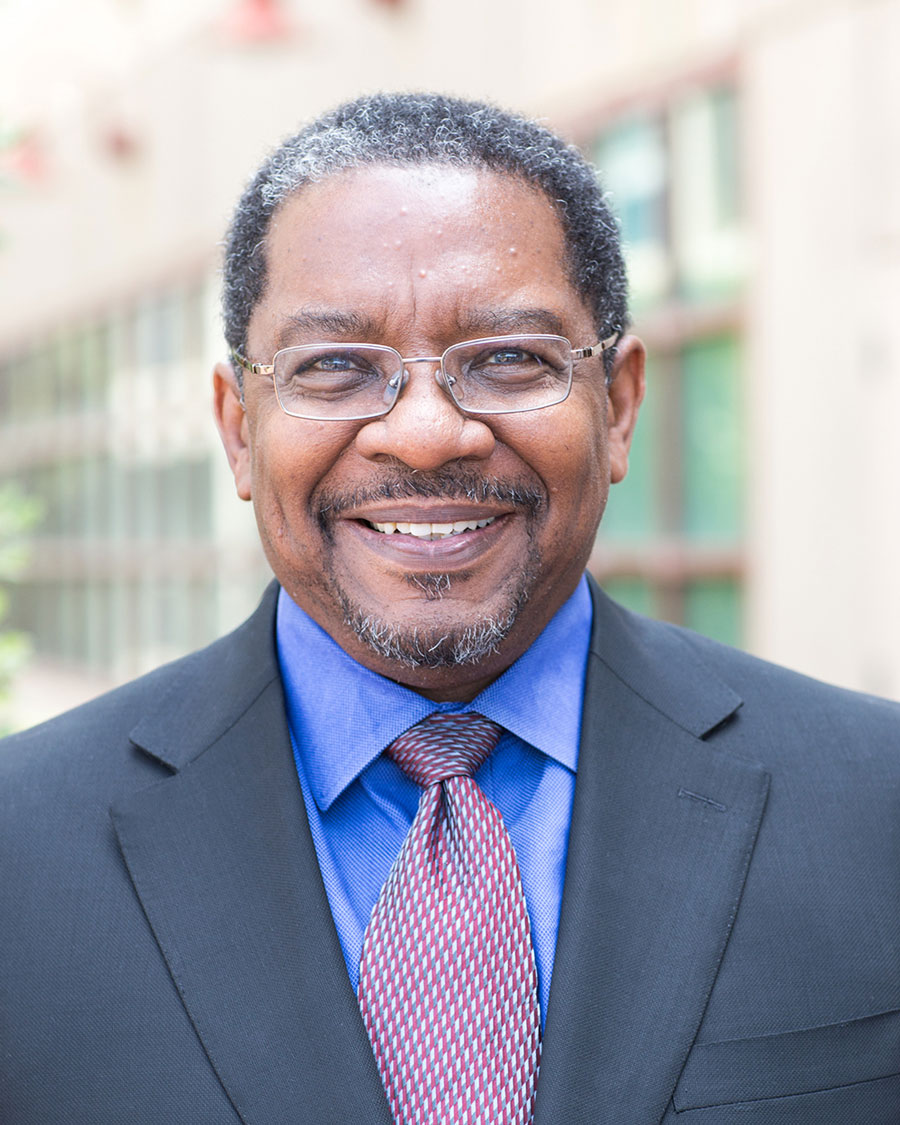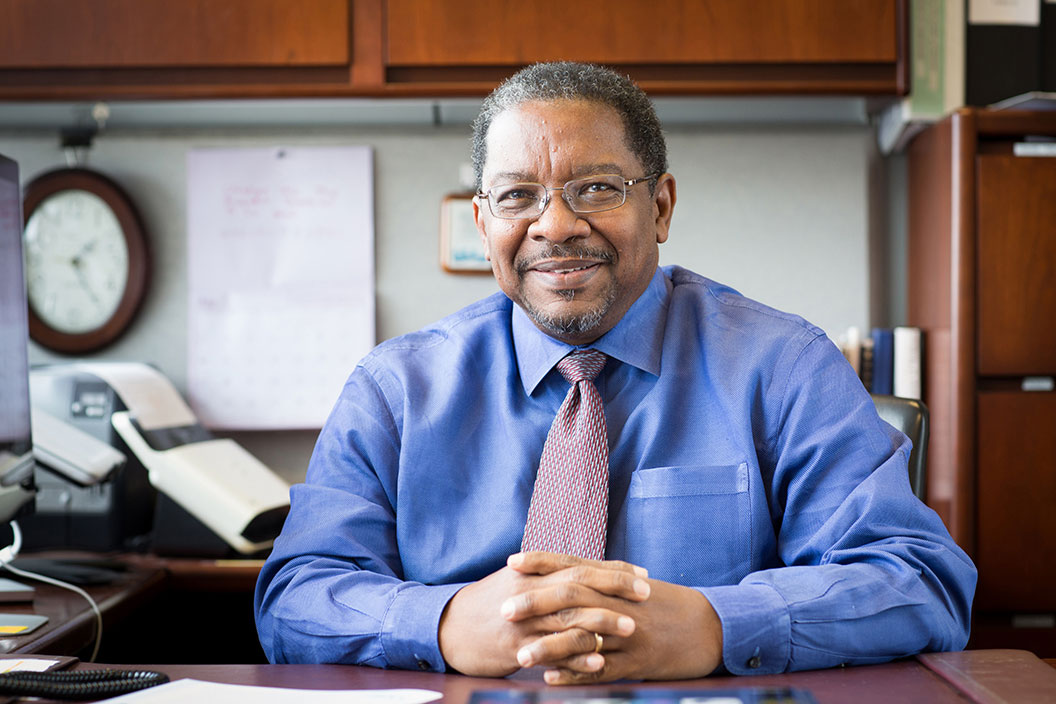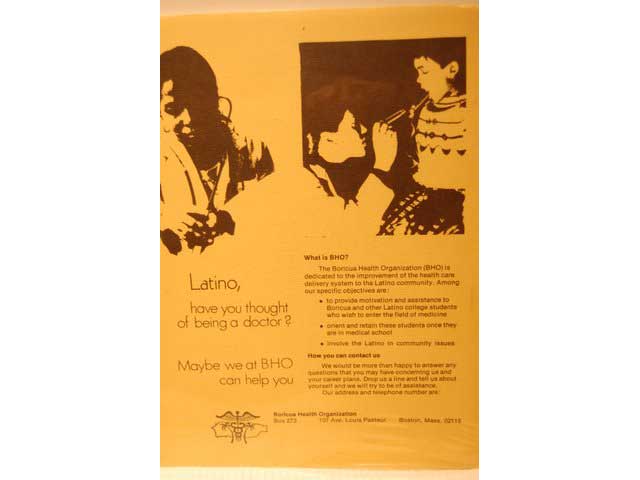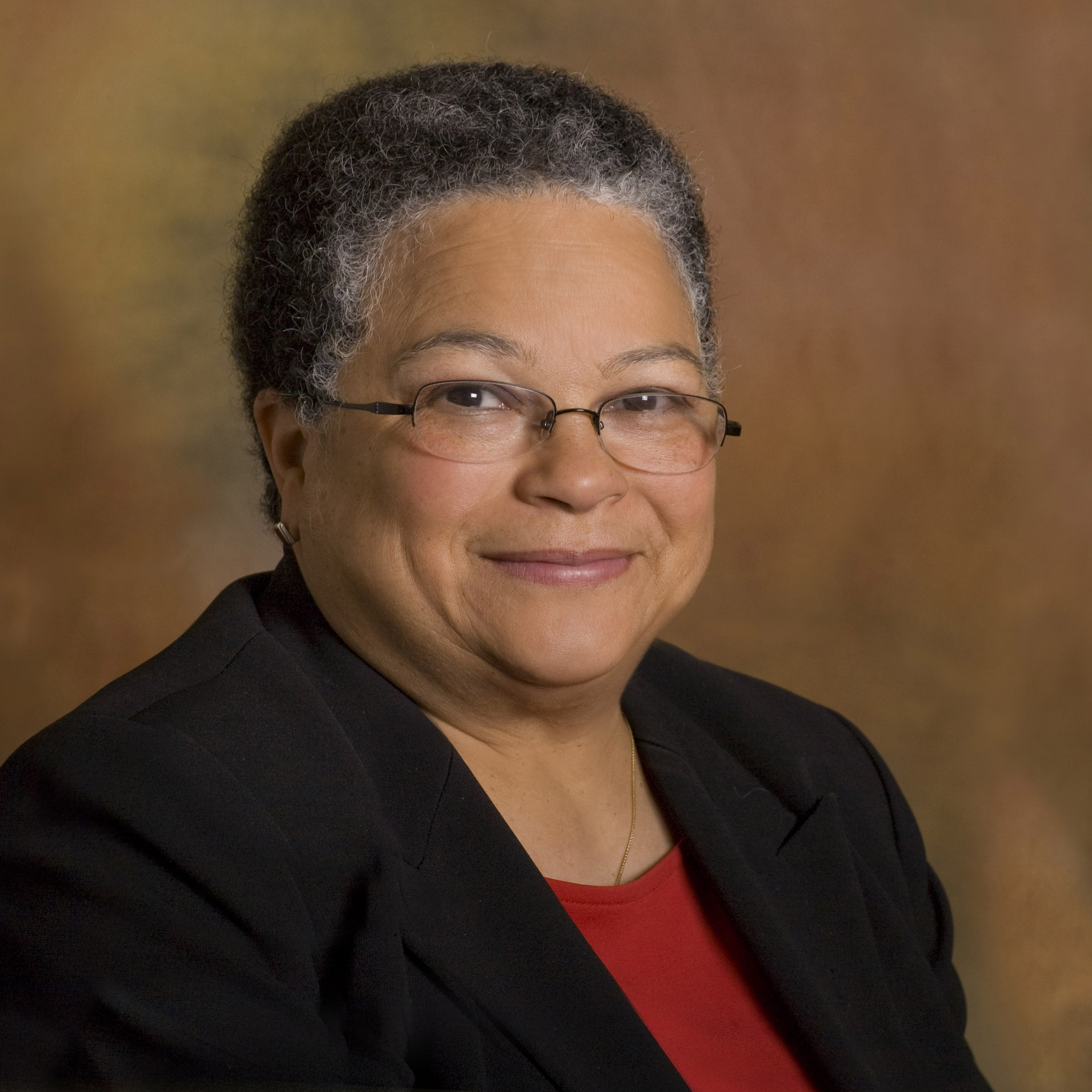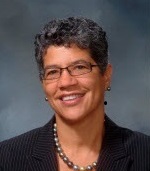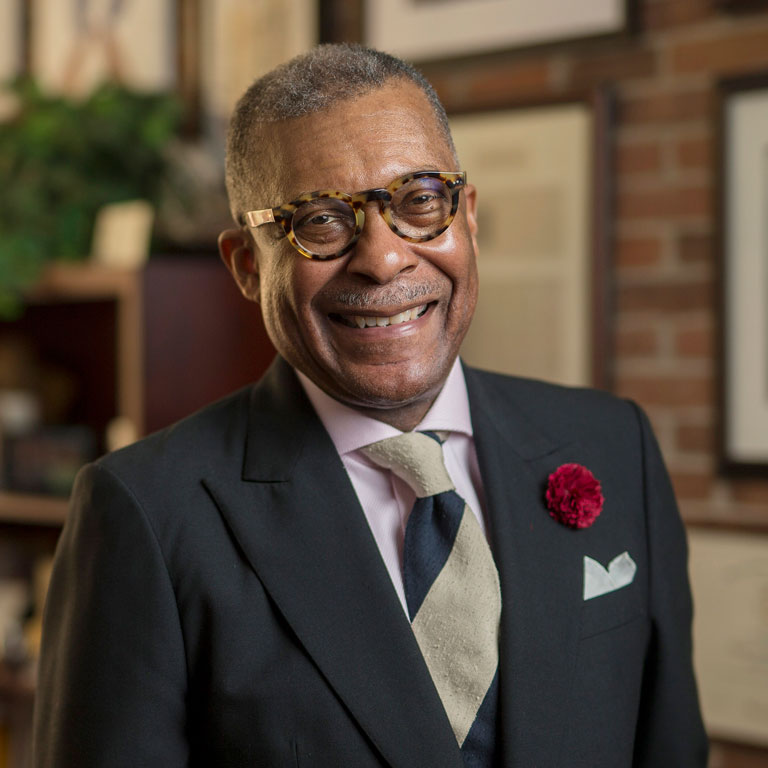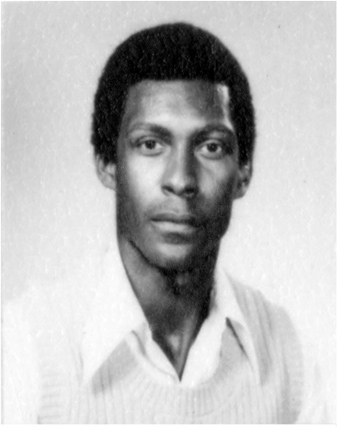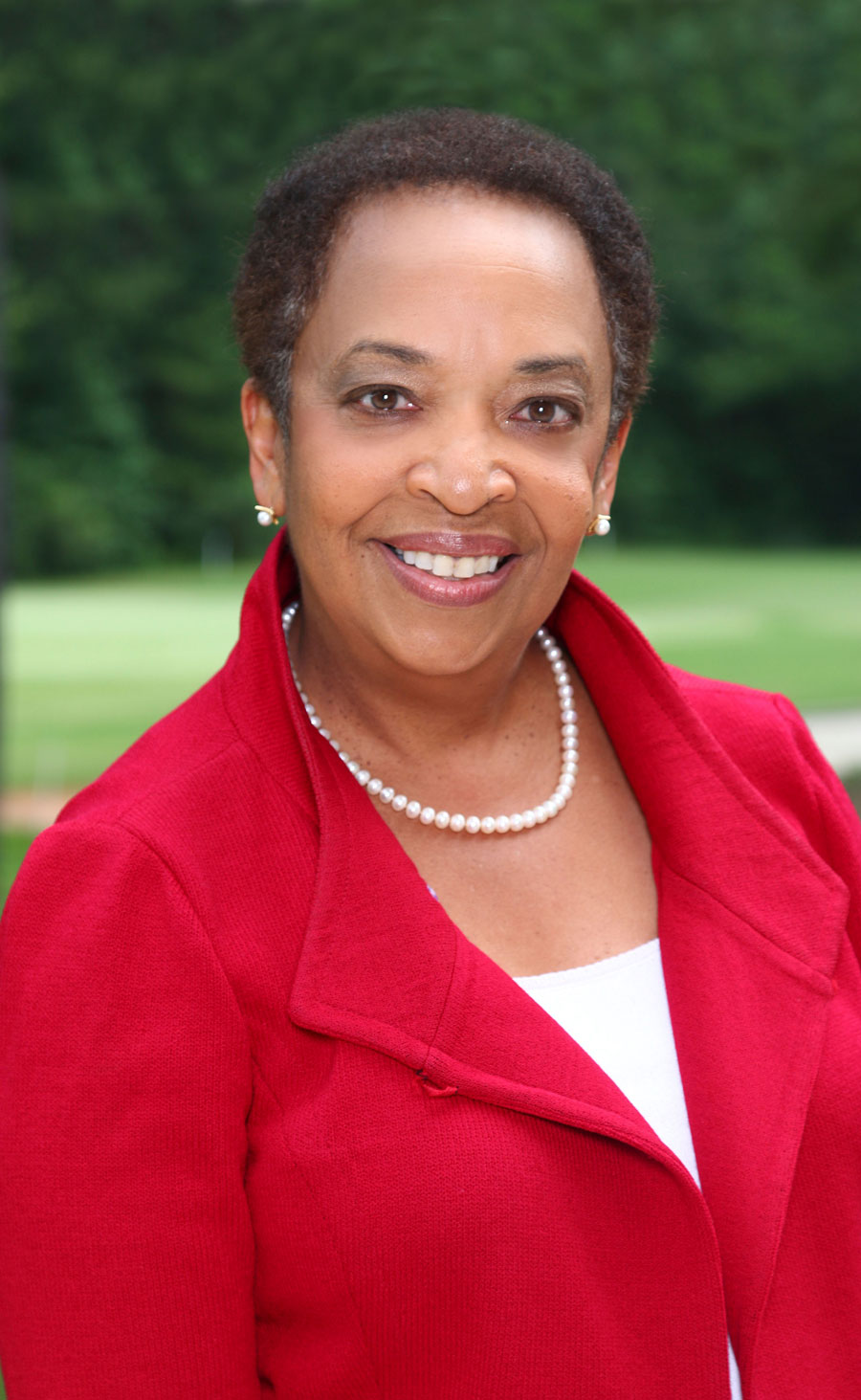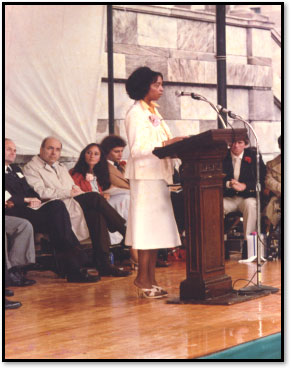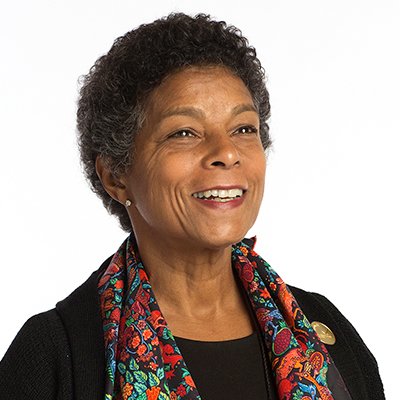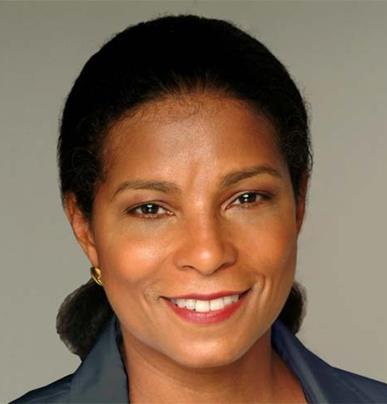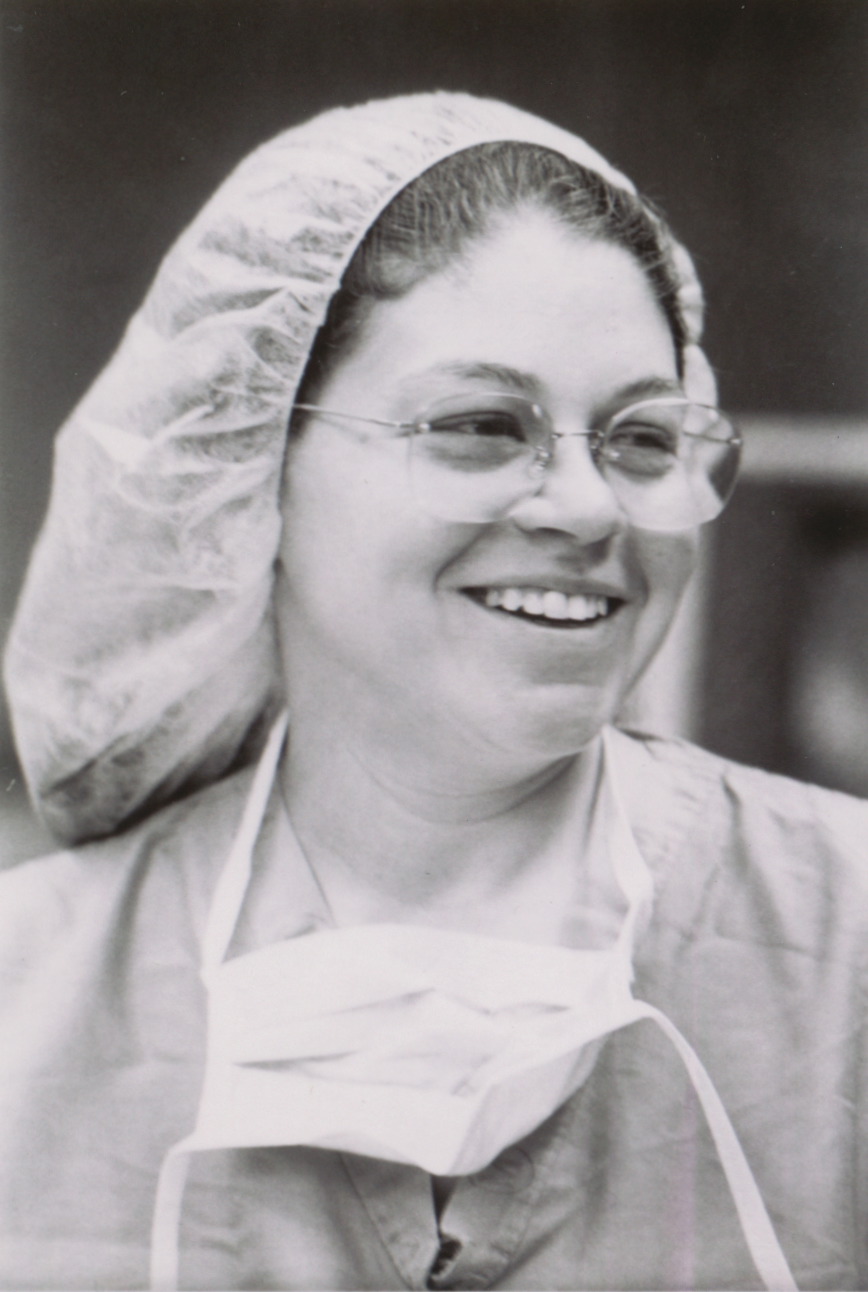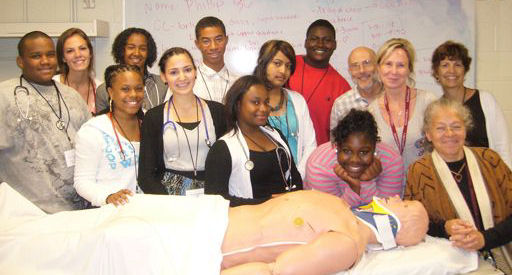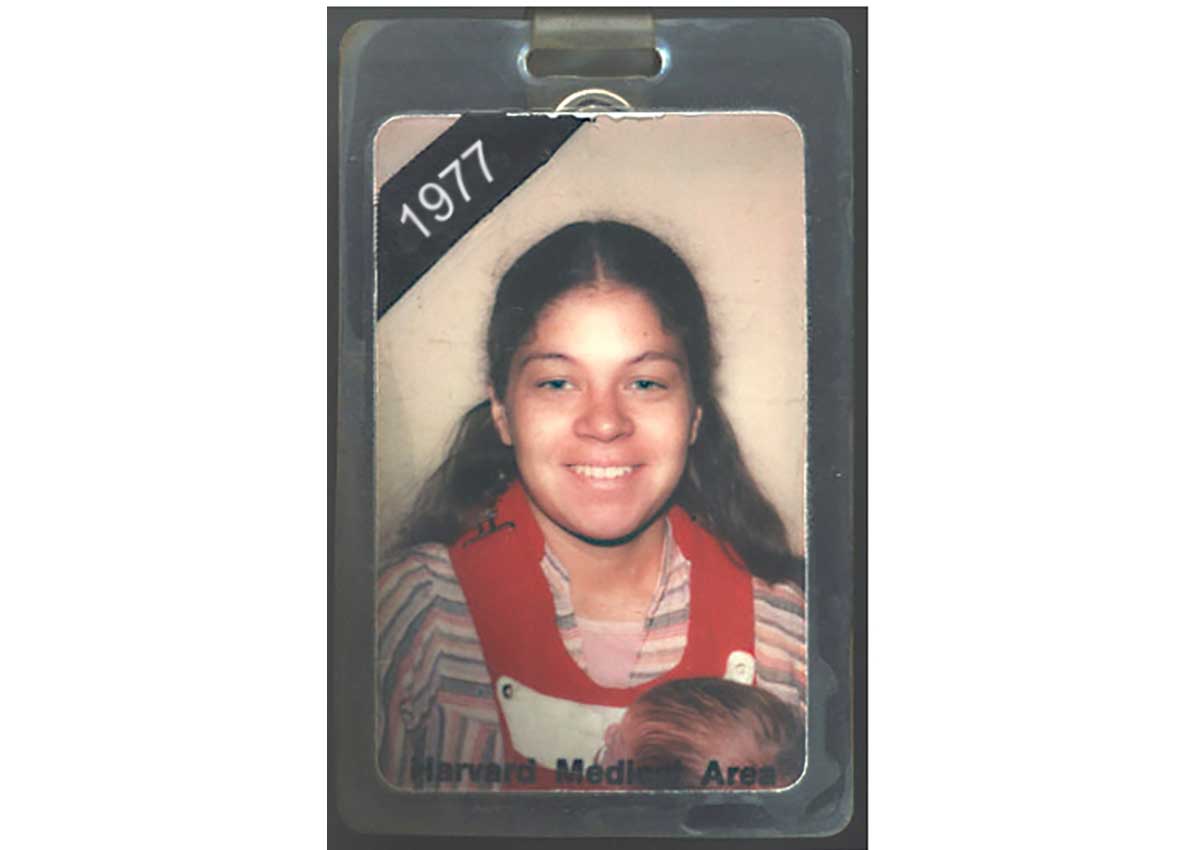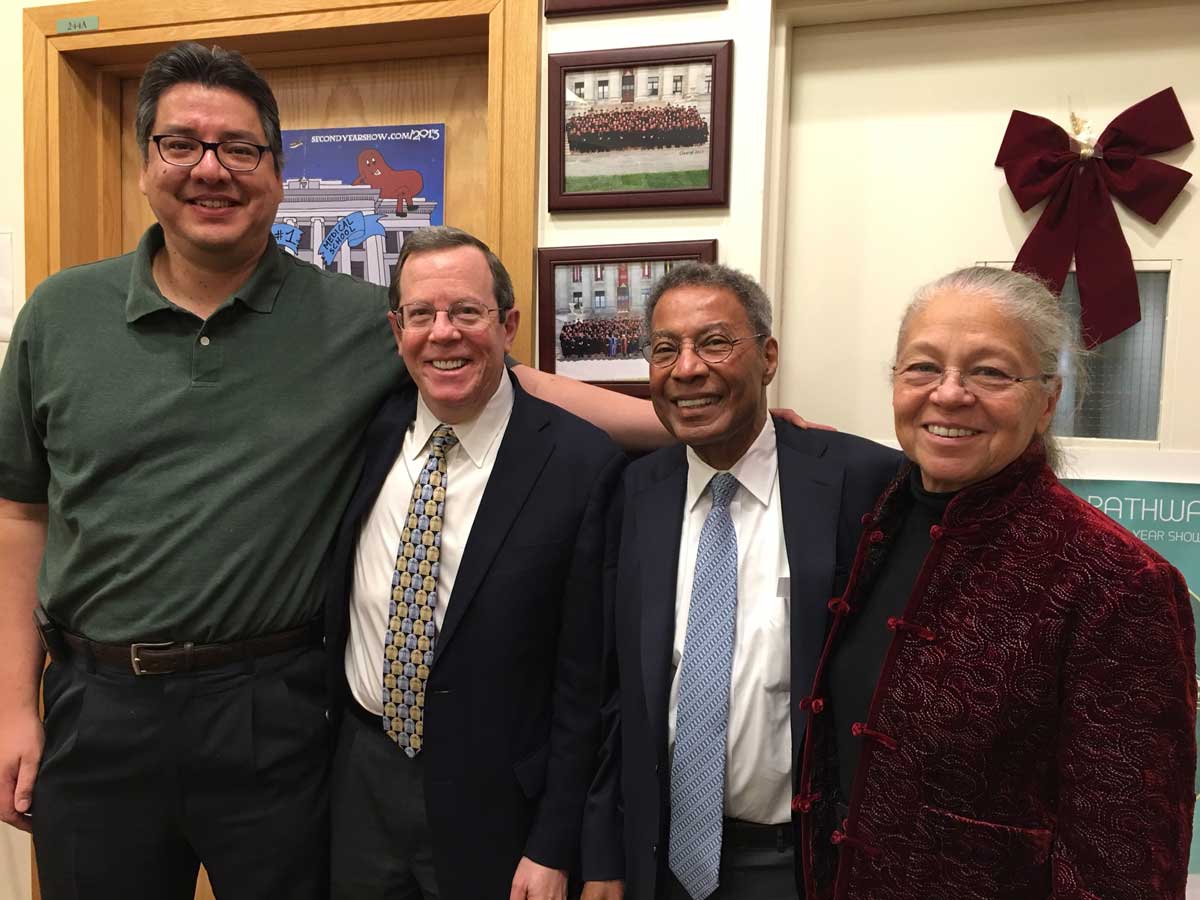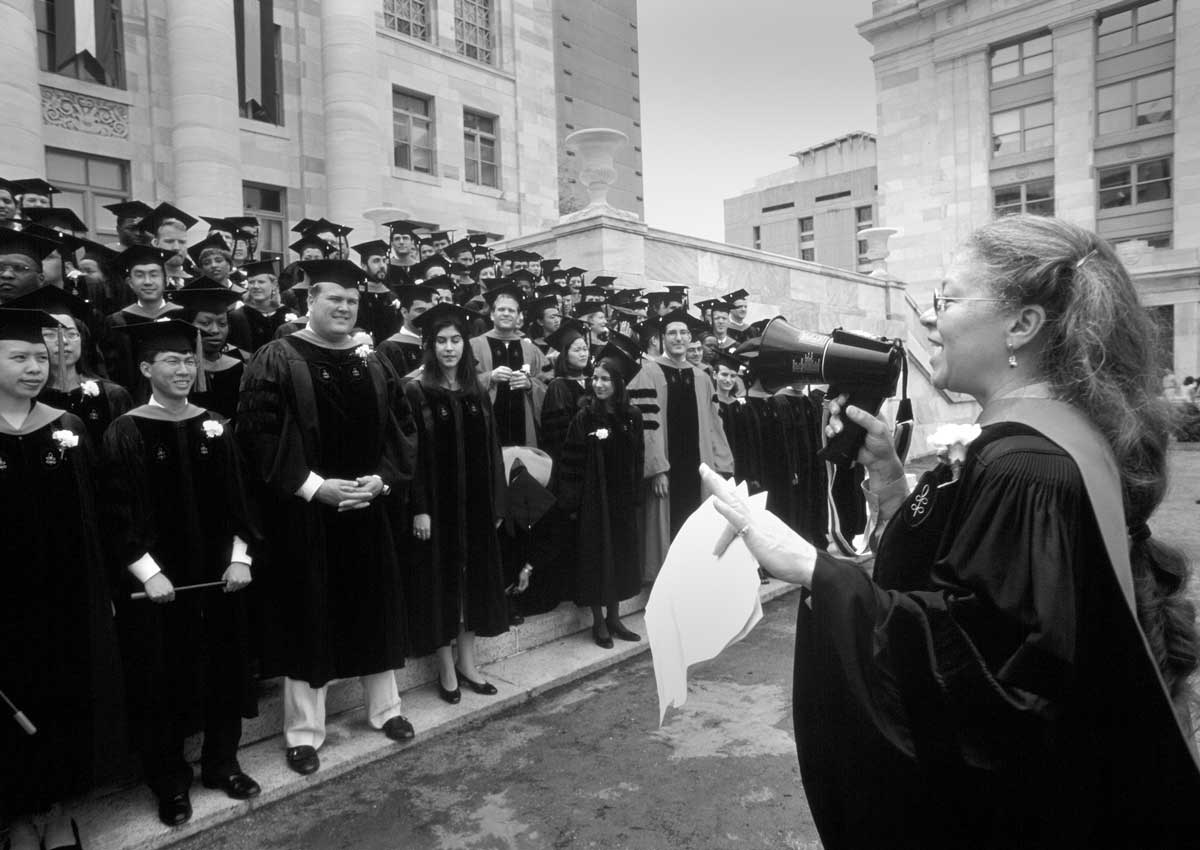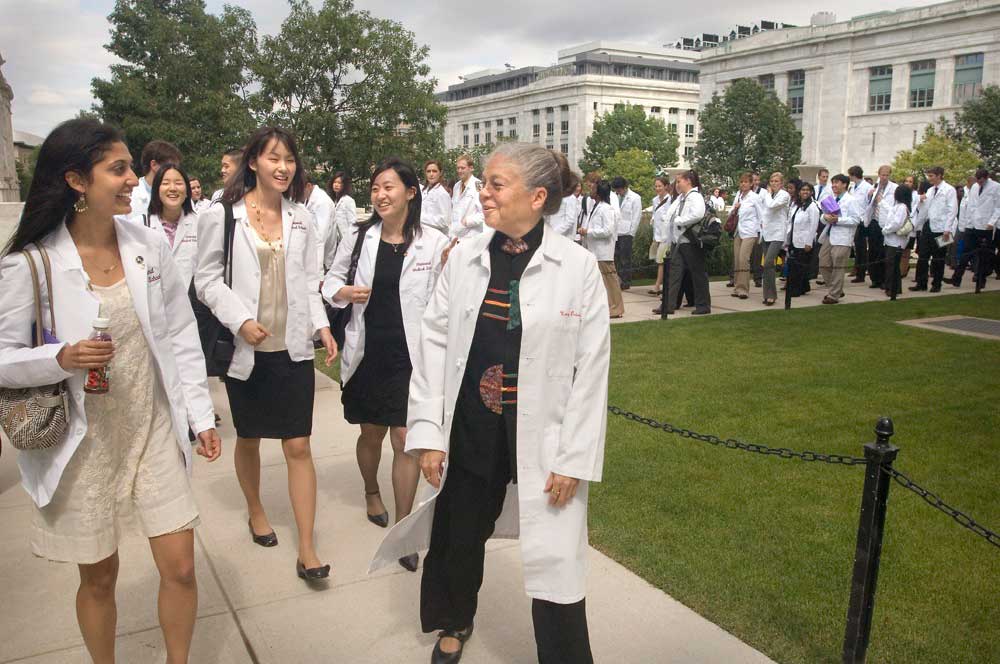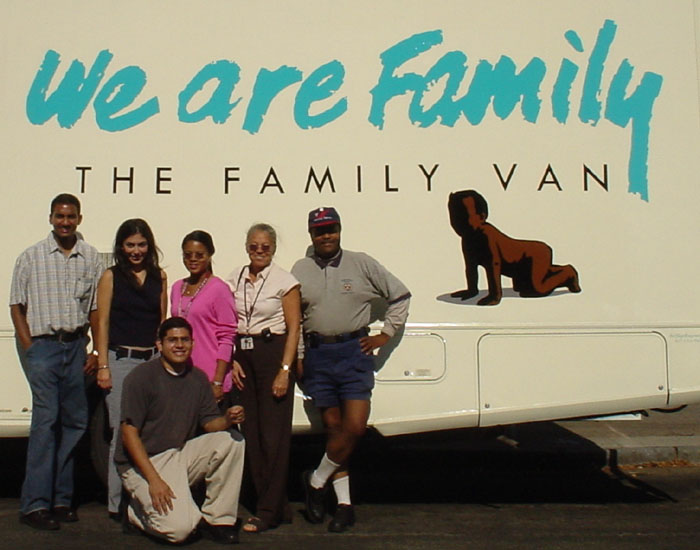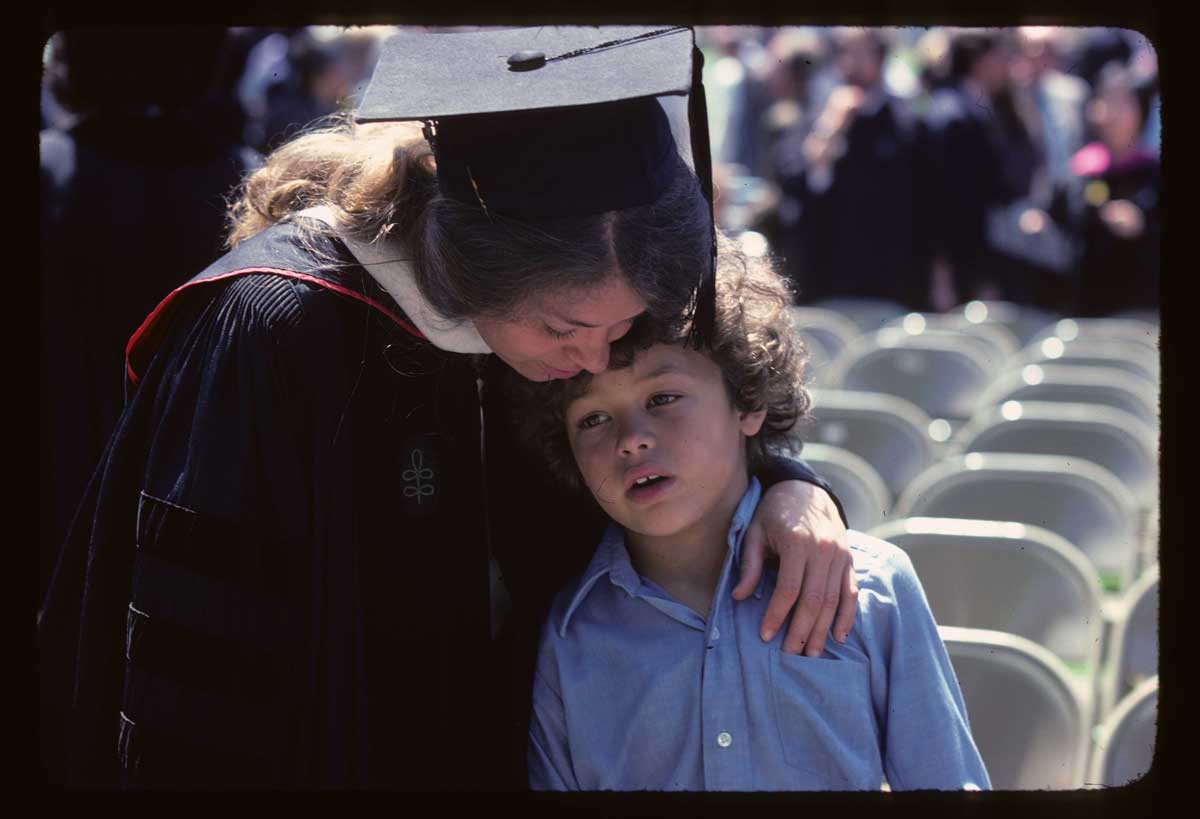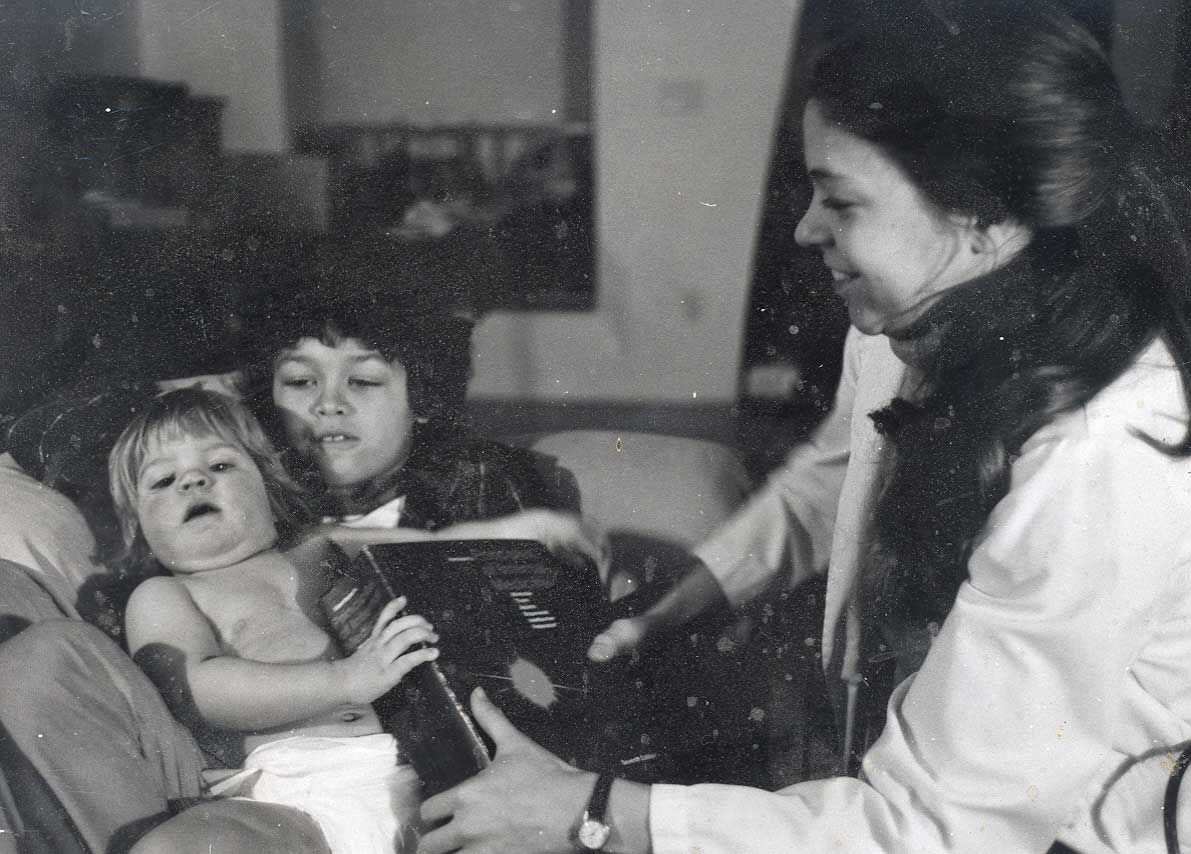1969
1982
Recounting the Experiences: The First 10 Graduating Classes
The first ten graduating classes of students after the affirmative action decision attended HMS from 1969 to 1983. Eight graduates from this period, among other key figures listed below, contributed oral histories to this project. They are now physicians, activists, deans, professors, and presidents of foundations and companies. All are leaders in the medical field.
These interviews highlight a myriad of experiences, recollections, and feelings about attending Harvard Medical School during this time period, amid a backdrop of several turbulent events.
Key Events
The Office of Recruitment and Multicultural Affairs (initially known as the Office of Recruitment and Retention) was established in 1969. Although the scope of the office was originally to increase Black representation on campus, it soon broadened its efforts to include other underrepresented groups, such as Native Americans, Mexican Americans, and Puerto Ricans. Today, the Office of Recruitment and Multicultural Affairs (ORMA) contacts undergraduate institutions to share information about HMS, is actively involved in the Revisit Weekend and other quality-of-life programs that affected underrepresented students, and helps to facilitate connections and support systems between current students, older students, and alumni. To learn more about ORMA, visit: https://meded.hms.harvard.edu/office-recruitment-multicultural-affairs
Throughout the 1970s and 80s, student organizations were created by students to keep them in contact with others from their respective communities, to discuss issues they faced as medical students, and to address health disparities. Some of the student organizations founded at the time were: the Black Health Organization, the Boricua Health Organization, the Hamilton-Hunt Association (focused on women in medicine and named after the first woman to earn a medical degree in the United States and the first woman to attend classes at HMS), the Maimonides Medical Society (focused on Jewish medical students), and the Third World Caucus.
Established in 1973 as a standing committee of the Dean of the Faculty of Medicine at Harvard Medical School, the Joint Committee on the Status of Women (JCSW) has lobbied around issues including work/life balance, salary equity, and childcare at Harvard Medical School and the affiliated hospitals.
In 1974, Dr. Mary Ellen Avery became the first woman physician-in-chief at Boston Children’s Hospital. The same year, Dr. Avery became the first woman to chair a major department at Harvard Medical School when she was appointed the Thomas Morgan Rotch Professor of Pediatrics.
Dr. Avery, born in 1927, attended Wheaton College, where she earned a degree in chemistry. She earned her medical degree from Johns Hopkins University School of Medicine in 1952. While completing a research fellowship in pediatrics at Harvard Medical School in 1957, she discovered surfactant deficiency in infants. Surfactant replacement therapy is now used to treat premature infants with respiratory distress syndrome. To learn more about Dr. Avery, visit: https://collections.countway.harvard.edu/onview/exhibits/show/avery.
In 1976, the New England Journal of Medicine published an editorial by Professor Bernard Davis. Dr. Davis, Professor of Bacterial Physiology, wrote "Academic Standards in Medical Schools," positing that some minority students accepted to Harvard Medical School did not have qualifications necessary for success. His argument that affirmative action led to substandard students and therefore a potential decline in healthcare nationwide led to protests at Harvard Medical School.
Read a report from The Harvard Crimson: https://www.thecrimson.com/article/1976/5/19/bernard-davis-and-minority-students-at/.
Key People
Augustus A. White III was born in Memphis, Tennessee in 1936. He attended segregated schools in Memphis, and graduated from the private Mount Herman School in Northfield Massachusetts in 1953. He completed his premedical studies at Brown University in Providence, Rhode Island.
Dr. White was the first African American medical student at Stanford University, surgical resident at Yale University, professor of medicine at Yale, and department head at a Harvard-affiliated hospital (Beth Israel Deaconess Medical Center). From 1966 to 1968, he served as Captain in the United States Army Medical Corps, serving as a combat surgeon at the 85th Evacuation Hospital in Qui Nhon, Vietnam from 1966 to 1967. Since retiring from surgery in 2001, White has researched and written about issues of diversity and cultural sensitivity in medicine.
Dr. Augustus White is the Ellen and Melvin Gordon Distinguished Professor of Medical Education at Harvard Medical School.
"People were of course aware and it would come up from time to time in conversation that I was the first African-American clinical chief or professor in surgery, you know, orthopedic surgery, but working in a hospital in that capacity..."
“And I went on to spend a year and a half in Sweden. And during that period I was working full time in research with no clinical responsibilities and able to complete a thesis and a doctoral thesis on the biomechanics of the spine, of the thoracic spine.”
”The year that I was accepted for the Ten Outstanding Men there were four African-Americans out of the 10 and it was pretty rare...The four individuals were Gale Sayers, who was a superstar professional running back, a fellow named Melvin Floyd who was a policeman and a minister and that was unique, and Jesse Jackson -- not Jesse Jackson Junior, Jesse Jackson -- and I was the fourth one.”
Graduate of the Harvard Medical School Dermatology Training Program, 1972
Dr. Gonzalez-Martinez was born in Aquadilla, Puerto Rico, and trained at the University of Puerto Rico. In 1972, Dr. Gonzalez-Martinez graduated from the Dermatology Training Program at Harvard Medical School and later became Chief of Dermatology Ambulatory Services at Massachusetts General Hospital.
Dr. Gonzalez-Martinez established the first Hispanic Medical Students Mentorship Program in the country, reaching across all four of Massachusetts’ medical schools. He also served as Associate Director of the Multicultural Affairs Office and as a founding member of the Diversity Committee at Massachusetts General Hospital. Dr. Gonzalez-Martinez is a Professor of Dermatology at Harvard Medical School and Dermatologist at Massachusetts General Hospital.
Dr. Gonzalez-Martinez has been awarded the Dr. Jim O’Connell Award by Boston Health Care for the Homeless for his service and treatment of homeless patients.
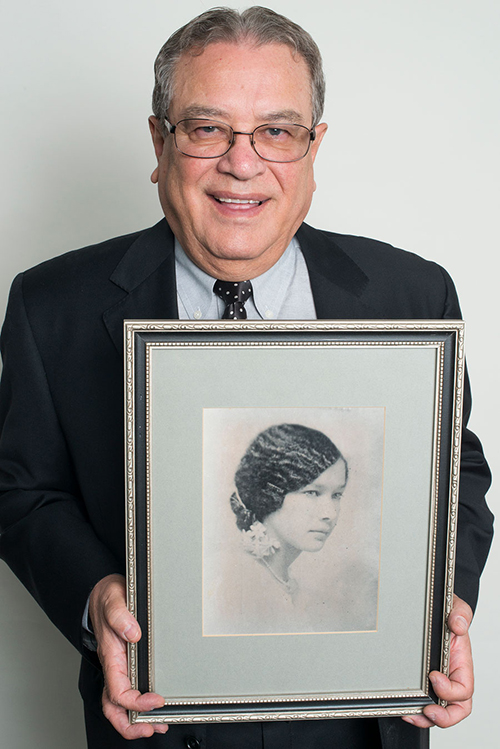
"So after a year and a half of making a quarter of the salary that a person with the same experience and the same education was making I said, “This is discrimination. I cannot.” Then that’s when I think I really started to think about medicine."
"So I was one of the lucky ones that was accepted to go into medical school at the University of Puerto Rico. As a matter of fact, at the end of my four years of medical school, only 35 of us graduated, so 15 did not graduate. Either they couldn’t do it or they decided medicine was not for them and quit early on in their educational career."
"And I remember a case that I always use as an anecdote was a patient that I used to see at the MGH when she had a home...But when I saw her at the homeless shelter…she told me, 'Doctor, I will never go and see you at the MGH because I feel ashamed that I am now homeless and I used to go and see you when I had a home and I had economic situation better than I have now.' And I said, 'Don’t worry. I can see you here every month.'"
"And from here on every year there will be Ernesto Gonzalez Award for community service and we’ll identify every year an employee at the hospital that more or less have gone beyond the duties and recognize that person and there will be a monetary component to the award that is given"
Graduated Harvard Medical School Class of 1973
Shirley Marks, born and raised in Tyler, Texas, attended Spelman College, in Atlanta, Georgia. She attended Harvard Medical School from 1969 to 1973, and credits being recruited by Dr. David Potter at Morehouse College, where she took most of her classes.
Dr. Marks was the second African American woman to attend Harvard Medical School, graduating in 1973. In 1975, Dr. Marks graduated from the Harvard T.H. Chan School of Public Health with a master's degree in Behavioral Science. After completing her medical education and training, she returned to Texas, where she specialized in psychiatry.
"Harvard Medical School has accepted Morehouse men for years, for decades; this is not new... I'm the first Spelman graduate to have been accepted at Harvard Medical."
"What happened in September of 1969, the history is, that was the first year that Harvard Medical School admitted more than 3 black students ...And so, we made history; there were 16 of us. I had no idea I was going to be the only female, speaking of social, cultural shock."
"I think that was really the difference, that there was a time when we got together to form coalitions, and when you form coalitions, you find out what other people are doing, whereas before...whoever was there in the 50s, it was just an individual accomplishment."
Graduated Harvard Medical School Class of 1974
Dr. Talmadge D. King Jr. is dean of the University of California San Francisco Medical School. He grew up in Darien, Georgia and attended Gustavus Adolphus College in St. Peter, Minnesota. After attending the Pre-Summer Matriculation Program, where he met and worked with Dr. Alvin Poussaint, Dr. Edwin Fushpan, and Dr. David Potter, Dr. King attended Harvard Medical School beginning in 1970 and earned his medical degree in 1974. Dr. King's research has focused on inflammatory and immunologic lung injury. His bibliography comprises over 300 publications, and he is a member of the Institute of Medicine of the National Academy of Sciences, American Academy of Arts and Sciences, Association of American Physicians, American Clinical and Climatological Association and the Fleischner Society. He is a master of the American College of Physicians and fellow of the American College of Chest Physicians.
“I grew up and went to school in a segregated, small school in Darien and graduated from high school there in 1966.”
“My interest in medicine probably started early, but I didn’t articulate out lout that I wanted to be a doctor until I was in college.”
“I did the Harvard Health Career Summer Program in, I think it must have been ’68, or ’69, … that was when I met Alvin Poussaint, and Furshpan, and Potter.”
“At the time, the big issues were school busing, and integration in Boston, and it was at a time when it was pretty tense living in Boston as a black person.”
“I always realized that I had to actually work hard and keep pushing so that I could catch up and begin to excel in my work, and so I spent a lot of time studying, and paying attention.”
“I think I started off thinking that I would want to do general surgery, but honestly, I didn’t find a surgeon that I could connect with and liked until I was a senior, and then by that time I decided I would do internal medicine.”
“Because I knew what I knew, and I worked hard to learn what I didn’t know, I actually realized that I could do as good a job as anybody, so I just kept going.”
“And you know, I try to carry with me, carry forward the kindness that they showed me in the work that I do now.”

Graduated Harvard Medical School Class of 1976
J. Emilio Carrillo, MD was born in Cuba and attended Columbia College in New York City. He earned his MD and MPH degrees from Harvard Medical School and the Harvard School of Public Health. He trained at Massachusetts General Hospital and Cambridge Hospital.
He is currently Clinical Associate Professor of Medicine at the Weill Cornell Medical College and Clinical Associate Professor of Epidemiology and Health Services Research at the Weill Cornell Graduate School of Medical Sciences.
“So as soon as I came to Harvard, I realized that I was among the very first Latinos to come to medical school at Harvard.” (06:50)
“And in 1961 before the missile crisis, there was an opening for children to get out of the country, because there was no visas for adults. So I was one of what’s called Peter Pan -- Pedro Pan -- kids -- about 16,000 young Cubans that left…with their parents staying behind.” (00:35)
”I also spent time doing community health volunteer work. There was a community service council at Columbia that got students involved in community work…I got very involved in working with the local community, working on housing issues, the squatter issues, and really learned a lot about the social determinants of health.” (04:42)
”It took a lot of daring by people like Furshpan and Kravitz and Poussaint and Eisenberg to begin to make the point that minority students had a place in medicine and a place at Harvard.” (10:00)
”And we had a saying that we passed on from year to year, which is that we don’t want to become Harvard-ized. And that terminology kind of meant that we don’t want you to just become a stereotypical Harvard academic -- we want to maintain our community roots, our community involvement.” (32:42)
Graduated Harvard Medical School Class of 1976
Adoniram Van Bowen, who went by Don, was a member of the Creek tribe from rural Oklahoma. He is known as the first American Indian to graduate from Harvard Medical School. Born in 1944, Bowen graduated from high school in Seminole, Oklahoma. He was raised in poverty by his mother, and before attending the University of Oklahoma, worked full-time to save money to be able to attend. He graduated with a bachelor’s degree in pharmacology in 1970, and decided between pursuing law and medicine because he felt both professions were needed within the Creek community. He attended a pre-matriculation program for one year at Harvard College, and graduated from Harvard Medical School in 1976. He served as President of the Association of American Indian Physicians from 1983 to 1984. He died unexpectedly at age 40 on December 27, 1984.
To learn more about Dr. Bowen, see “Don Bowen: Bridging the Gap Between Two Nations”: https://archive.org/details/harvardmedical59harv/page/40.
Graduated Harvard Medical School Class of 1978
Judy Ann Bigby was the first in her family to become a doctor, graduating from Harvard Medical School in 1978. She was a Henry J. Kaiser Fellow in general internal medicine at HMS and Brigham and Women’s Hospital (BWH) before joining the faculty at Harvard and the BWH department of medicine in 1984. In 2007, Dr. Bigby was appointed Secretary of Health and Human Services for the Commonwealth of Massachusetts, making her the first African American woman to serve in the position. She provided oversight to 17 state agencies and was a member of the Cabinet of Governor Deval Patrick until 2012.
In 2011, President Obama appointed her as one of the inaugural members of the advisory group on Prevention, Health Promotion, and Integrative and Public Health of the National Prevention, Health Promotion and Public Health Council. Dr. Bigby became the Executive Director of South Africa Partners in June 2017. She has been a member of its board of advisors and board of directors for more than 15 years.
Graduated Harvard Medical School Class of 1979
Dr. Deborah Prothrow-Stith blazed trails as a physician in Boston and as a commissioner of public health in Massachusetts. She is a graduate of Spelman College and Harvard Medical School, and she completed her residency in internal medicine at Boston City Hospital in 1982. Dr. Prothrow-Stith broke new ground by defining youth violence in America as a public health problem. From 1987—1989 she served as Commissioner of Public Health for the Commonwealth of Massachusetts, making her the first woman, the first African American, and the youngest ever to serve in the role. Appointed by Governor Michael Dukakis, Dr. Prothrow-Stith led a department with 3,500 employees, eight hospitals and a budget of $350 million.
Following her service to the Commonwealth, Dr. Prothrow-Stith was the Henry Pickering Walcott Professor of Public Health Practice and Associate Dean for Diversity at the Harvard T.H. Chan School of Public Health, where she created and led the Division of Public Health Practice. Dr. Prothrow-Stith is currently Dean and Professor of Medicine for the College of Medicine at Charles R. Drew University of Medicine and Science in Los Angeles, California.
The recipient of numerous awards, Dr. Prothrow-Stith received the 1989 Secretary of Health and Human Service Award and a Presidential appointment to the National Commission on Crime Control and Prevention. In 2015, she was inducted into the honor roll of women physicians in the Massachusetts Medical Society.
Graduated Harvard Medical School Class of 1979
Andre L. Churchwell, MD, graduated from the Vanderbilt School of Engineering magna cum laude in 1975. He attended Harvard Medical School and earned his medical degree in 1979. He completed his internship, residency, and cardiology fellowship at Emory University School of Medicine in Atlanta, Georgia.
Dr. Churchwell is a Professor of Medicine (Cardiology), Professor of Radiology and Radiological Sciences, Professor of Biomedical Engineering, and Senior Associate Dean for Diversity Affairs at Vanderbilt University School of Medicine.
“…there was no other med school in the country I was more interested in than Harvard, because it had all those great resources, all the opportunities to look at engineering in medicine and science.” (17:20)
“…my dad’s family originated from a plantation -- which we found out about recently -- down near Clifton, Tennessee, which is in the southwest part of the state.” (00:04)
”And I came home -- been back home since 1991, and have been working with Vanderbilt all along. I…became a dean of diversity involved in diversity since ’07 -- almost 10 years now -- here, taking all the lessons I had learned at Emory -- and the lessons about the importance of diversity from Harvard Med School. Make it clear, I learned a lot about the importance of diversity, and the value of it.” (33:44)
Graduated Harvard Medical School Class of 1979
Eve Higginbotham, MD, was born in New Orleans, Louisiana. She studied chemical engineering at Massachusetts Institute of Technology, and earned both her undergraduate and master's degree. She earned her medical degree from Harvard Medical School in 1979.
Dr. Higginbotham specializes in ophthalmology and chaired the ophthalmology department at the University of Maryland School of Medicine. Later, she held positions as dean and senior vice president for academic affairs at Morehouse School of Medicine, and as senior vice president and executive dean for health sciences at Howard University. She is currently Vice Dean for Diversity and Inclusion at Perelman School of Medicine at the University of Pennsylvania.
“And so, I remember those moments as times when I was really proud of my class, that there were people in my class that believed in social justice, who believed in something bigger than who we are.” (23:28)
“…it was just a horrible editorial. And it instantly kind of put me in this -- the spirit of wanting to fight back, to prove him wrong, to really raise a voice against this statement..” (16:20)
”And I just felt that ophthalmology…wasn’t ready for a woman chair...But I decided to take on the challenge, and became a chair at University of Maryland, and that gave me the opportunity to make a mark in my field, as the first woman to chair a university-based ophthalmology department.” (36:49)
”But Harvard Medical School has been a great launching pad in medicine. And I think, even if my experience wasn’t the most ideal, it certainly is irreplaceable as a secure launching pad into a career that I have enjoyed, over these last, almost 40 years, if you will.” (45:32)
Graduated Harvard Medical School Class of 1979
Risa Lavizzo-Mourey was born in Seattle, Washington, and earned her undergraduate degree at the State University of New York at Stony Brook. She earned her medical degree from Harvard Medical School in 1979 and her master of business administration from the University of Pennsylvania's Wharton School of Business in 1986.
Dr. Lavizzo-Mourey joined the Robert Wood Johnson Foundation in 2001 and served as its first woman and first African-American President and CEO from 2003 - 2017. She is now the Robert Wood Johnson Foundation PIK Professor of Health Policy and Health Equity at the University of Pennsylvania.
“And I can still remember that to this day, that that was published in the New England Journal of Medicine that people like me would leave a swath of death in their path.” (11:48)
“So my family was part of the great migration, as it’s often referred to, of African Americans from the South to the West and the North.” (00:50)
”…we went to rent an apartment and as soon as the landlord saw me he said, “It’s rented,” so that’s the backdrop against which coming to the medical school as a person of color…what we found when we got there.” (09:02)
”When I was at Penn as a professor, my primary care practice was making house calls, so I saw firsthand how, where people lived affected their ability to regain health or maintain health…” (17:35)
Graduated Harvard Medical School Class of 1979
Nancy Oriol, MD, was raised in Philadelphia, Pennsylvania and attended Boston University as an undergradute. She earned her MD degree from Harvard Medical School in 1979
From 1984 to 1997, Dr. Oriol was the director of obstetric anesthesia at Beth Israel Deaconess Medical Center. She is known for developing the "walking epidural," an anesthetic technique which allows laboring women to move, as well as the NEO-VAC Meconium Suction Catheter for newborn resuscitation. She is associate professor of anesthesia at Harvard Medical School. She is currently Faculty Associate Dean for Community Engagement in Medical Education.
Dr. Oriol is also founder and executive director of the Family Van, a public health outreach program that brings services from the hospital out into the community.
“To have a senior faculty say you all got in through the back door was extremely damaging”
“…in obstetrics, you have everybody, rich and poor, you know, one room next to each other, and everybody -- everyone’s doing the same thing, but you can see the world that comes with them.”
”…so that’s kind of where the Family Van came from… I figured if we went out there and checked people’s blood pressure and dip stick their urine and told them about WIC, that was half the job. Obviously, it was more than that, but that was where it started, it was sort of like how to get education and resources to the people who didn’t even know to ask for them.”
”…so when Joe Martin came here he was very interested in opening the school to the community. So I thought that was a beautiful thing, that he actually cared, he was the one who opened the doors to the community, supported all the community service stuff that was going on, and there was a moment where this was becoming much more community focused in a very nice way.”
”Well the number of minority students was also a line that was increasing but the number of minority senior faculty was decreasing. And so if you have -- if you look at women and you say, more women students, more women faculty. That makes sense. More minority students, less minority faculty.”
”And so it had sort of gone from affirmative action to let people in the front door at all, to caring about disparities and health outcome, like we ought to do something in the sense of social justice, do the right thing -- to the sense of, well we ought to do the right thing and do it well, until cultural competence.”

